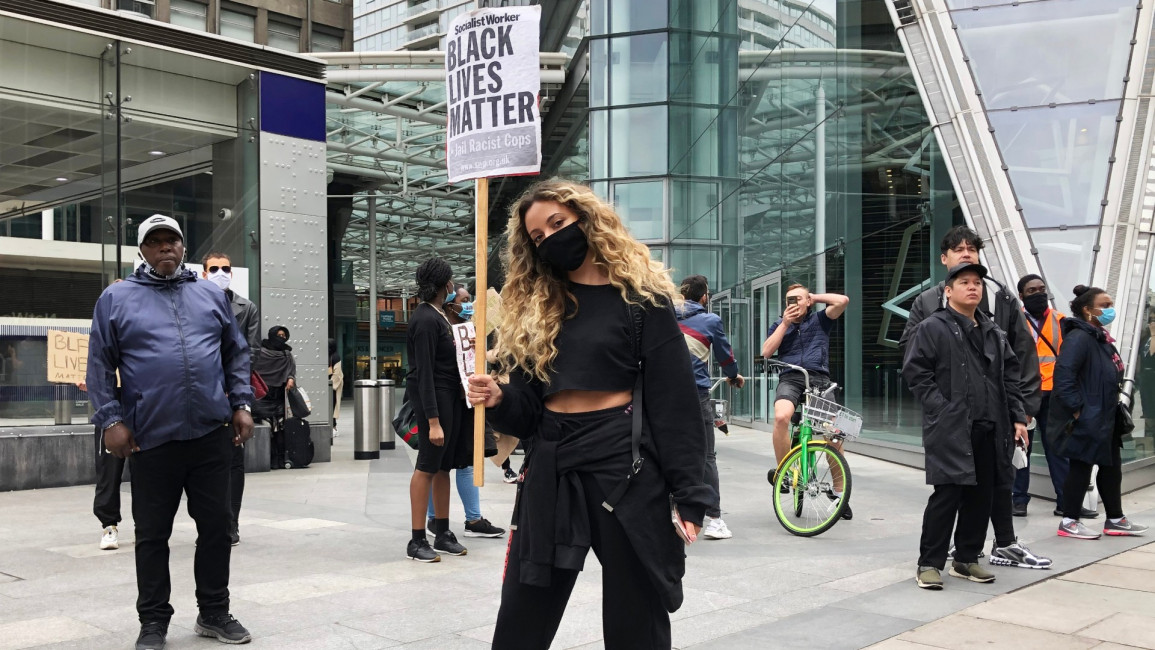Soup and khubz: Lil Mix singer Jade Thirlwall embraces Arab identity after years of bullying
Little Mix singer Jade Thirlwall said she is finally ready to fully embrace her Arab identity after experiencing years of bullying and ostracization.
Thirlwall, who is of an English, Yemeni and Egyptian heritage, said in an interview with Vogue Arabia that her earliest and fondest memories of connecting with her Arab roots was when she grew up around her grandfather.
“I grew up in an area called Laygate, South Shields in the north-east of England. It’s near the docks where a lot of Arabs worked from the 1920s. My granddad Mohammed arrived around 1943 from Yemen,” she explained, adding that her grandmother was Egyptian.
“They were very much in love and settled in the coastal town. They loved the large Arab community, and everyone stuck together. Sadly, my grandma passed away when my mam was just four so I never had a chance to learn much about my Egyptian heritage, but my granddad talked about her a lot.”
She remembered her connection to the Muslim faith fondly, with her grandfather practicing devoutly but letting his children and grandchildren forge their own spiritual path.
“While my granddad didn’t force his children or grandkids to follow his religion, he was a devout Muslim and wanted us to know about his faith and culture. We lived near the local mosque and he would tell me beautiful stories about when he went to Mecca. He would always cook for us, too – I loved his chicken soup with khubz, which is the best bread in the world. I remember him fasting for Ramadan, and during Eid I would wait for him outside the mosque and say Eid Mubarak to his friends as they came out, and they would gift me a pound coin.”
After her grandfather passed away, her connection to her roots began to drift and got worse when she got bullied.
“Where I’m from in England, if you weren’t evidently black or white, you were put in this big bowl of one ‘other’ thing. I used to get called the P-word, which I didn’t understand as I’m not Pakistani. I was also called half-caste. During one incident someone pinned me down in the toilets and put a bindi spot on my forehead,” she said.
“There was a complete lack of education and understanding of different races and faiths. It affected my mental health. I became very depressed and it triggered the eating disorder I had throughout school.”
Thirlwall is now trying to reconnect to her Arab heritage, saying she wants to explore her identity, learn Arabic and to be a good role model for younger Arabs who look up to her.
“When I was younger, I didn’t see enough representation of Arabs in magazines or on TV, and when I saw people who looked like my granddad they were always misrepresented. There’s this stereotype of Muslims being terrorists. I regret now that I didn’t talk about it more, but I was young and scared. I’m trying to make up for it now,” she explained.
“I’m more open to being that voice for people. I think it comes with being more confident in yourself, and more curious. My mam and me have started looking into our culture more and it’s something that is bringing us closer together. The Black Lives Matter movement and the war in Yemen has triggered a lot of trauma for my mam, who I think suppressed who she was for a long time, too. The past few months have been very eye-opening for us. We’ve talked more than we ever have about race and who we are.”
Follow us on Facebook, Twitter and Instagram to stay connected



